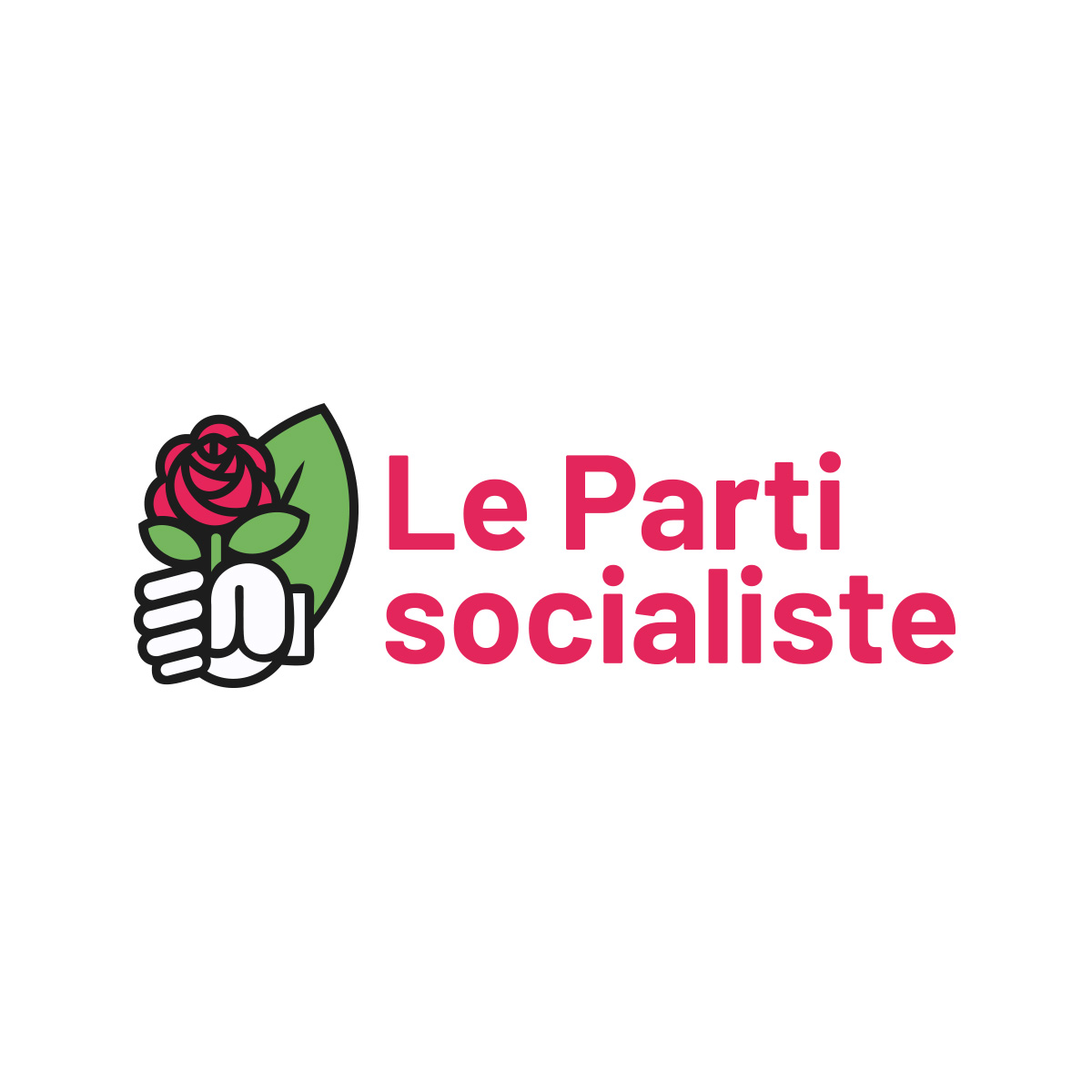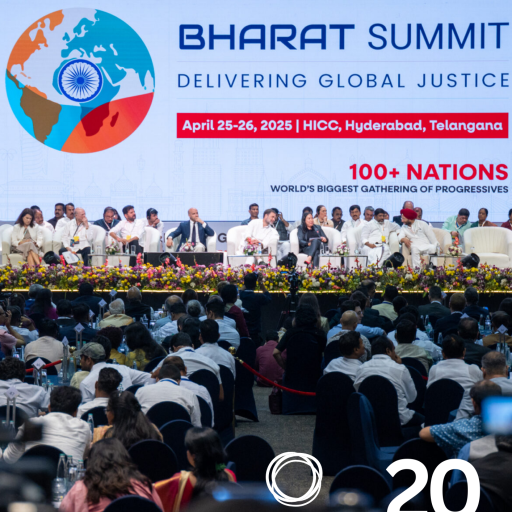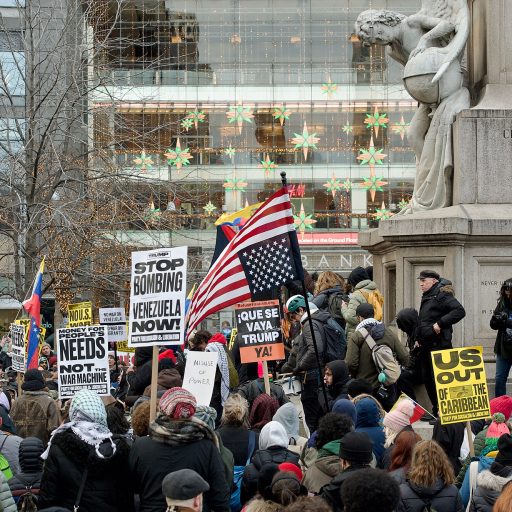FIRST ROUND OF THE PRESIDENTIAL ELECTION IN FRANCE:
A HISTORIC DEFEAT
The day of 10 April 2022 has gone down in the history of French elections as the culmination of a decomposition and an obvious rotting of the democratic foundations on which the French Republic has stood for decades.
The voter has long since become a strategist who determines himself not so much on the basis of loyalties or convictions as on the basis of a desire to punish or support, to let off steam or to heckle the system. He does his shopping, he weighs up his preferences and his hatreds and one sentence can override an entire speech.
Abstention is higher than in 2017, which was the lowest level since 1988. The historic collapse of the classic right and social democracy, despite their presence in the territories, and the overwhelming weight of the populist parties of the right and the left will lead, as it did five years ago, to a second round of the presidential election between a democrat and a populist who, this time, has a reserve of votes.
Believing that its time has come, the radical left dominates while refusing any union with the other left-wing and environmentalist forces.
Emmanuel Macron’s successful gamble?
The strategy of the president-candidate Macron in 2016 consisted in making the traditional parties look like a joke and posing as the only bulwark against the extreme right. The attraction of the novelty for a techno-bonapartist newcomer who governed by practising technocratic centralism, was total for anyone who wanted this moment as Italy had in 2014 with Matteo Renzi, Great Britain with Tony Blair in the 90s earlier or, to a lesser extent, the Netherlands with Wouter Bos, to shake up the system, the habits and the conservatisms, to bet on modernity, youth, happy globalisation, the overturning of taboos…
But Emmanuel Macron’s five-year term saw the emergence, with the Yellow Vests, of a violent social rebellion due to a government that relied on the upper middle classes, that spared the powerful and did not understand the need for dialogue with social forces.
So much the worse if the local elections did not allow the presidential party to establish itself in the territories, even though they reminded us of the solidity of the bases of the two big parties of the left and the right in the regions and the cities.
The health crisis obviously upset Emmanuel Macron’s action, just as the financial crisis had upset Nicolas Sarkozy’s five-year term and terrorism had disturbed François Hollande’s reforms. The worst test for Western societies in peacetime has obviously had political consequences, notably with the “convergence” between what remained of the resigned Gilets jaunes and the rise of anti-vax and health pass opponents.
The war in Ukraine also froze for a few weeks a presidential debate of unprecedented intellectual, ideological and theoretical poverty: it was only a question of postures, image and especially polls, never of the substance of the programmes.
The press, for its part, played a two-part score: rolling out a red carpet for the far right by talking only about Islam, insecurity and immigration, and repeating over and over again the story of an inescapable qualification of the far right for the second round of the presidential election with an overdose of polls following one another and looking alike, which set up what the performances of the different political camps should be (both probable and desirable).
But history does not always repeat itself faithfully and the country is preparing itself or is prepared for a victory of the extreme right in the ballot box, now that it has already won in far too many minds.
Eric Zemmour or the metapolitical strategy
The assimilation of one of Antonio Gramsci’s most popular theses – the conquest of cultural hegemony is a prerequisite for any political victory – by the French far right for more than 40 years has once again proved its effectiveness.
Like many national-populists, Zemmour has built his position on the basis of the space he has conquered in the media over the past ten years. The conservative journalist became a columnist, a successful author, and then a reactionary polemicist whose discourse and notoriety eventually forced him to become politically involved, while his supporters methodically invested in social networks. He took advantage of the radical space left by Marine Le Pen to regenerate an extreme right that was supposed to be “institutional” and that was weakened by the failure of Marine Le Pen during her debate between the two rounds of the 2017 presidential election. This strategy, relayed for hours on a TV channel, paid off as he managed to poach several RN executives. His intransigence on all issues cost him and finally, he finished ahead of Le Pen. It remains that he will count in the nebula of the radical right because the post-Marin Le Pen will begin on the evening of the second round if she loses and we know that on the far right, the figure of the leader is not to be taken lightly and his niece, Marion Maréchal already has a political and intellectual device connected to Salvini, Orbán or Bannon…
Has Mélenchon succeeded in the pasokisation of the PS?
It was an old dream dating back to the 2005 referendum on the Constitutional Treaty, the victory of Syriza in Greece and the breakthrough of Podemos in Spain, to succeed in replacing social democracy on the left with radicalism.
If the PS remains the leading force on the left in France in terms of local elected representatives, the attractive force on the left is now La France Insoumise, which in its strategy of Popular Union (reminiscent of Allende’s strategy in Chile, except that it was a coalition of the lefts), Mélenchon, despite his excesses, his ambiguities about Russia and anti-Semitism, is convincing with his European version of Peronism, which was approached by Ségolène Royal – who supported the “líder” of the radical left who had left the PS because of the same Ségolène Royal in 2008… It is a direct relationship with the people, the contestation of the oligarchy, a text that is a little old-fashioned, but brought up to date, a radicality that appeals to the nostalgics of the leftism of the 70s, to the enthusiasts of Latin American struggles in their anti-US grammar with, in its fringes, the instrumentalisation of all radicalities in the service of the “coming (citizen) revolution” including the currents of political Islam, which is sexist, anti-Semitic and anti-republican.
With 2% in Paris, Anne Hidalgo has suffered a cruel disavowal two years after her re-election, without her legitimacy being questioned by anyone today among Parisian elected officials, from the left and the right.
The fact remains that Mélenchon and his movement La France Insoumise (LFI) have no allies in Europe because of his intransigence and that even his model, Die Linke, has failed with many of its voters migrating to the ranks of the AfD, also breaking down on the refugee issue – a crisis that has also affected the LFI. Moreover, the idea of an SPD-Die Linke dialogue has never been totally taboo, at least on the side of the latter.
This situation will not leave the PTB indifferent in neighbouring Belgium, especially in the French-speaking part where the PS remains the main force on the left.
The failure of the Greens – reformism or radicalism?
In 2009, the French Greens had succeeded in making a German-style realistic turn and defeated the Socialists in the European elections, but as after every governmental experience, a leftist turn triumphed. Yannick Jadot did not succeed in imposing an eco-reformist orientation with a governmental culture in a party without discipline. His message was too often disrupted by the catch-all tendency of this party, which welcomes radicals on its lists on many social issues. The fact that climate issues are central to political debates has deprived the ecologists of a monopoly on alertness on the subject, whereas they could have been the most inventive both on realistic solutions and on the way to achieve them without frightening the voters.
The Roussel effect
The communists, who had had their best result in the 1969 presidential elections, had been declining ever since, or going along with the Socialist Party or with Jean-Luc Mélenchon.
It had to choose between integrating the pole of radicalism on the left, and supporting Mélenchon, or assuming its identity in order to pose as an alternative to both the PS and LFI. The real objective was to safeguard his parliamentary group after the loss of the last departmental council in the 2021 local elections.
Faced with a Socialist Party that seemed disconnected from the social and popular realities of the country, it made a breakthrough cynically welcomed by the right and the press who saw a “true republican left” forgetting that it was the Communist Party, still linked to the Chinese CP for example and some local elected officials have marched with Islamists – a red line often brandished to vilify the left against the backdrop of “Islamogauchism” trials. All this was forgotten… Roussel was mocked by ecologists and the radical left for his positions, which were considered “franchouillardes”, i.e. “average French”.
The high price of Valérie Pécresse’s ambiguities
Valérie Pécresse had left the Republican party because of the victory of the populist right-wing orientation carried by Laurent Wauquiez, whose MEPs never supported the exclusion of Viktor Orbán from the EPP, but she carried the same orientation once she was a candidate by playing on the discourse of order, a punitive logic and by letting perceive a real porosity with some of the themes of the extreme right, especially as her opponent in the second round of the right-wing primary was very close to Eric Zemmour’s theses.
Caught between the radicalism of Le Pen – Zemmour and the right-wing politics of Macron, she had no space, largely nibbled by the latter. She received no support from former president Nicolas Sarkozy. By achieving the worst result of the right in a presidential election in France, she can nevertheless count on a strong local presence, but the reconstruction of a conservative presidential party will be very hard. Never before has it been so weak.
Anne Hidalgo or “Arx Tarpeia Capitoli proxima”
Like Valérie Pécresse, at the Ile-de-France Region, Hidalgo had a great victory when she was re-elected Mayor of Paris. This made her the “natural” candidate of a government party that has no presidential candidate after 2017 and whose leadership oscillated between effacing itself behind an ecologist candidate and asserting itself without a unifying incarnation.
To avoid an internal debate that he feared would be fratricidal, the First Secretary ensured that the designation of the mayor of Paris was only a formality and the Socialist Party believed that the transposition of the cumulative successes of a regional president and the mayors of large cities such as Paris, Nantes, Rennes, Montpellier and Nancy – the mayor of Marseille having decided to support a candidate who was unable to stand for the vote due to a lack of sufficient sponsorship – would allow it to build a dynamic. This was forgetting that mayors always give priority to their local commitment, even if it means keeping their distance from party affairs.
A second mistake was the collective ambiguity regarding the primary. The PS had written the primaries into its statutes, but decided not to organise them, fearing that they would lead to division as in 2016-2017. But, needing a dynamic, it wanted to support the popular primary, which was shunned by almost all the left-wing candidates, and whose organisers ended up, after having gathered and made more than 400,000 sincere citizens pay, and after Christiane Taubira’s failure to obtain the 500 sponsorships necessary to run, by supporting Mélenchon, whereas Yannick Jadot had come second in the vote… Anne Hidalgo presented herself, then withdrew when she understood that the union was not there, whereas the PS had called on its militants to participate…
The PS never imposed itself as a propulsive force capable of organising, with its cadres, a methodical campaign in which the candidate lacked support, not having an inclusive and inventive collective, even though she had a good programme, good networks and was the only one, with Emmanuel Macron, who could count on solid European allies who embodied the capacities of a governmental left.
Anne Hidalgo also paid for the powerful bad mood towards her municipal management, relayed in the rest of the country by a paradoxical anti-Parisianism, since within the PS, no alternative candidacy was ever proposed by those who were reluctant towards the mayor of Paris.
The hostility to her person, which bordered on obsession and harassment, was never really countered with vigour and energy by a PS that had long since lost the battle of the social networks, which were largely dominated by the extreme right.
The distrust between the candidate and the PS first secretary, the stories about former president François Hollande’s intentions to play a role other than support, although he unhesitatingly gave his support to Anne Hidalgo, the staging of rallies of former socialist ministers to Emmanuel Macron without these always being new facts, and the rolling fire of polls making her score as much a prediction as an injunction did the rest.
The PS had not regained any real propulsive force since 2017 and it marched into the presidential elections without any illusions, hoping finally to do better than Benoît Hamon’s 6% in 2017.
This time it was the PS itself that suffered the effects of a situation that it had itself created by a mixture of amateurism, indecision, nonchalance and indifference to the real problems of the French people, too concerned to “stick” to what the ecologists and France Insoumise were saying and also to the injunctions of reactionary currents which, while wanting to fight against Islamism, said nothing about how to fight it ideologically.
What perspectives for the legislative elections?
The dynamics of the legislative elections on 12 and 19 June obviously depend on the outcome of the second round of the presidential election.
This is the first time that there has been such a long period between the two elections, which leaves time for discussions, for some to bounce back and for the correction of a campaign that did not focus on the substance. A legislative campaign is less the third round of the presidential election than 577 campaigns linked to a national context.
If Emmanuel Macron wins, which seems most likely, we already know that about a hundred outgoing LReM MPs will not be candidates or re-elected. Depending on the constituency, this may benefit almost all parties.
The performance of presidential candidates is not mechanically transferable to candidates from the same political party and there are therefore some issues that are challenging, notably the question of parliamentary groups. It takes 15 MPs to form one.
There is little chance that there will be a global alliance on the left because LFI can go to the end of the “sorpaso”, the replacement of the PS and the fact that Jean-Luc Mélenchon only lacked half a million votes to be qualified for the second round confirms that it is the division that has closed this door.
In this dynamic, the ecologists and communists have little reason to help the SP, but we must also understand that the presidential election says nothing about the reality of the possibilities next June. It all depends on the candidates, their implantation and the campaign. In any case:
– LFI should win deputies and thus secure its parliamentary group.
– If there is an agreement, the ecologists could perhaps gain deputies and probably find the means to constitute a parliamentary group.
– The Communist Party is determined to keep its parliamentary group, but the competition with LFI will be tough, especially if Jean-Luc Mélenchon’s party presents candidates against the Communists in all the constituencies as in 2017.
– The Socialist Party may lose its group or lose the position of first left-wing group in the National Assembly.
– Le Pen may gain enough to form a group, which would be a first since 1986 when there were 35 National Front MPs thanks to the proportional representation system. It remains to be seen whether Zemmour’s friends will also have deputies and whether, if there are not enough of them to have an independent group, they will form a nationalist group together.
There is also the question of the possibility of a union on the left. Is a left bloc possible with ecologists who want their group, socialists and communists who want to save theirs after the failure of a common strategy in the presidential elections, can the lesson be learned? And if so, will the discipline of withdrawal be applied everywhere? With or without LFI?
What will happen to the PS in the coming months?
A bit like Sisyphus, the Socialist Party is playing the now well-known 3Rs score of “refoundation, renovation, reconstruction” with a classic pattern: the partisans of radical change who sing this refrain while they are in charge to ensure their maintenance and compete with those who reproach them for embodying the continuity that led to failure; The impetuous who want to “fire on the headquarters” thinking that the change of heads is a prerequisite and that for the rest we’ll see afterwards, others still militate for a social-democratic change without that meaning a lukewarm socialism because after all, we are in France, a country where modesty with regard to other European countries or the rest of the European left is not the strong point of the socialists!
There will be demands for congresses, conferences, Estates General or even an inventory in which the main battle will be to force the socialists to recognise their mistakes and to forget their successes during the 2012-2017 quinquennium. But this will never be enough.
It will be thought that a new organisation will be an obligation without it being clear how it will work, because after the intentions the behaviour will not change.
If 2023 is a year without elections, apart from the senatorial elections in some departments, the SP should enter a new electoral cycle in 2024 with the European elections, in 2026 the municipal elections and in 2027 the presidential, legislative and regional elections… Before new European elections in 2029…
The 3Rs process will therefore be unfinished. But there should be a cohabitation between “the hares and the tortoises”: the former, anxious to maintain their position or to move quickly by being fluctuating and dilettantes in their work, the latter, ready to face the test of time, to move forward with method and endurance without giving in to shortcuts and easy ways.
What is certain is that nothing is possible with a project without a party to build and disseminate it, any more than with a party without a project to build and disseminate, which is why, instead of the classic 3Rs, if you like, we need to deal with the 3Ps: “project, party, performance”.
Pierre Kanuty
Federal Secretary for International Solidarity
Former diplomatic adviser to the Party leader
Paris, 12 April 2022





![Headline: Hier bitte das Thema [ Headline] 24.10.25, Lucerne, Switzerland, Progressive Alliance PA women conference](https://progressive-alliance.info/wp-content/uploads/elementor/thumbs/MAW251024mw859033AdobeRGB-scaled-recq0qxu9kb6pncdi2i7wo6ttne03ppnu58zxxdc74.jpg)
![Headline: Hier bitte das Thema [ Headline] 25.10.25, Lucerne, Switzerland, Progressive Alliance PA women conference](https://progressive-alliance.info/wp-content/uploads/elementor/thumbs/MAW251025mw860402AdobeRGB-scaled-recs8kegm3kqlleif2kq512xsjz2qfl3t7kc0t0tts.jpg)